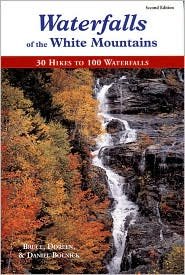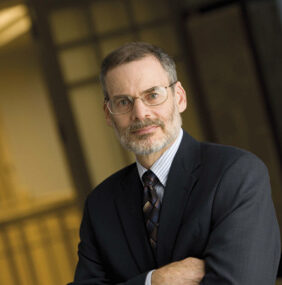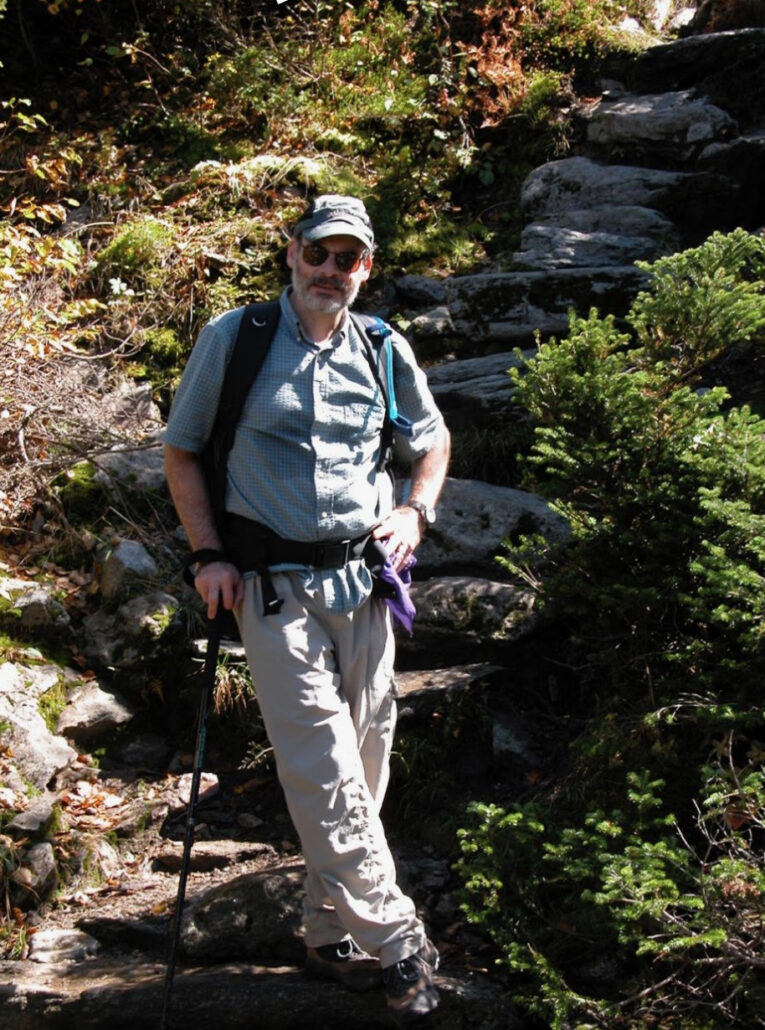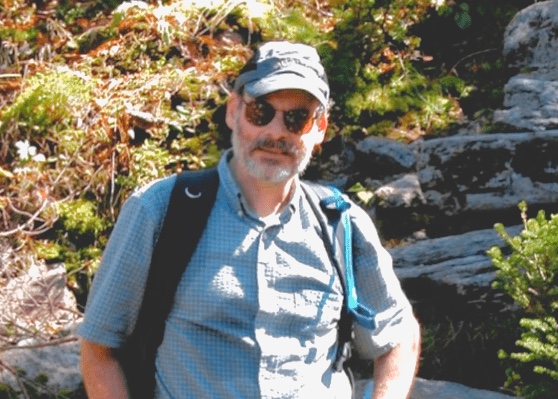Bruce Robert Bolnick, November 19, 2023
From Legacy.com
Bruce Robert Bolnick (Yale BA 1969, PhD 1972) passed away on November 19, 2023, in Topsfield Massachusetts, at the age of 76, surrounded by loving family.
Bruce was born May 12, 1947, in Detroit, Michigan, to Arnold and Rebecca Bolnick. He grew up in Skokie, Illinois, with three brothers (Howard, Ira, and Mitch). He attended Kenton Elementary school, Lincoln Junior High School, and then Niles West High School where he became a state champion gymnast.
He gained admission to Yale where he studied economics as an undergraduate (class of 1969), then obtaining his PhD in record time (1972). For his graduate research he studied how human behaviors can cause departures from the principles of rational economics, a topic that was not well received at the time, but which (as Bruce would wryly note) led to a Nobel Prize for some later researchers.
The Yale experiences that Bruce most loved to recount included his role in pressuring the administration to open Yale to women, his captaining the gymnastics team, and captaining the Yale Cheer team. He led the cheers at the ill-fated homecoming game in 1968, where Harvard “beat” Yale 29-29, and supported his African-American teammates’ plan to do a black power salute at a game. Most importantly, while at Yale he met his life-long love, Doreen Joyce Ouelette at a mixer dance. They married December 20, 1970 in a small ceremony at Yale.
Since childhood he had been captivated by Africa and the tales of European explorers like Livingstone. To pursue this fascination, after his studies Bruce took a job teaching economics at the University of Nairobi, Kenya. He and Doreen spent two years experiencing every corner of that country, from the coast to the highest mountains (climbing Kilimanjaro for their third anniversary), from city to remotest countryside. Their letters home to family, during this time, are filled with stories of birds, wildlife, landscapes, new cultures and people, and tales of risky disasters narrowly averted: escaping buffalo or rhino charges, camp visits by lions, or miles- long treks through flooded coastal swamps. It was during this sojourn in Kenya that Bruce became a keen bird-watcher and naturalist, a passion he pursued throughout his life.
Returning from Kenya to the U.S. in 1974, Bruce and Doreen moved to Durham, North Carolina. Their son Daniel Imara Bolnick was born a few months later. Bruce was an Assistant Professor of Economics at Duke University (1974-1979). Five years later they moved to Jakarta Indonesia, where he worked for the Harvard Institute for International Development (HIID) project as an advisor to the Bank of Indonesia
(1980 – 1982). While there, Bruce and his family traveled widely within Indonesia, and went trekking in Nepal, and India. He learned to play Gamelan music from a local teacher (in addition to his facility with piano and classical guitar.).
Returning to the U.S. in 1982, Bruce briefly worked as a visiting professor at the University of North Carolina Chapel Hill, before getting a job as an Assistant Professor at Northeastern University. Moving back to New England had been a dream for him and Doreen, so they could be closer to their beloved woodland property and ramshackle cabin in northern Vermont, and spend more time hiking in the White Mountains of New Hampshire. They moved to Reading, MA, in 1983. Bruce was promoted to Associate Professor with tenure at Northeastern, where he specialized in teaching about the macroeconomics of development in lower income countries. He contributed to a textbook on the topic (Economics of Development, led by Malcolm Gillis). A sample of his research publications can be found listed here.
 During their years in Reading, Bruce and his family continued to be active hikers, completing ascents of the 48 highest peaks in the White Mountains, NH. Needing a new project, Bruce and Doreen decided to write a hiking guidebook, “Waterfalls of the White Mountains: 30 hikes to 100 waterfalls”. This project required extensive hiking for research, of course, but also delved deeply in the human history and natural history of the region. The book is in its third edition, published by Countryman Press. Bruce and Doreen also became active volunteer naturalists with the Appalachian Mountain Club. He would lead nature walks and give lectures on New Hampshire bird life, forest ecology, forest history, and a wide range of other topics. He read books about natural history, ornithology, and botany more and more eagerly.
During their years in Reading, Bruce and his family continued to be active hikers, completing ascents of the 48 highest peaks in the White Mountains, NH. Needing a new project, Bruce and Doreen decided to write a hiking guidebook, “Waterfalls of the White Mountains: 30 hikes to 100 waterfalls”. This project required extensive hiking for research, of course, but also delved deeply in the human history and natural history of the region. The book is in its third edition, published by Countryman Press. Bruce and Doreen also became active volunteer naturalists with the Appalachian Mountain Club. He would lead nature walks and give lectures on New Hampshire bird life, forest ecology, forest history, and a wide range of other topics. He read books about natural history, ornithology, and botany more and more eagerly.
In 1990, Bruce and Doreen took their son Daniel back to Kenya for a short visit, going on Safari in Masai Mara, Amboseli, Tsavo, Samburu, and more. This visit rekindled his excitement about Africa, and a year later he accepted a position as an economics consultant to the Ministry of Finance in Zambia. Taking a leave of absence from Northeastern, the family moved to Lusaka, Zambia. Zambia at that time was among the poorest countries in the world, suffering from economic mismanagement by the independence-era ruler, Kenneth Kaunda. Early in their stay in Zambia, Kaunda was defeated in an open election and willingly stepped aside. Bruce worked with the optimistic new government ministers under the new president Frederic Chiluba to craft macroeconomic and tax policy reforms, and poverty alleviation policies. His extensive letters to his parents in these years (1991-1995) document the challenges and achievements of this work, but also spare time to describe a bustling schedule of bird-watching and safaris to remote parts of Zambia, Botswana and Zimbabwe. Over Christmas break 1991, he and Doreen once again went trekking on Mt. Kilimanjaro, this time with their son. They did many long road-trips from Lusaka, often seeking out
diverse bird communities. Bruce became deeply involved in the Zambian Ornithological Society (now called Birdlife Zambia), and became a lifetime member of that organization.
 Bruce and Doreen briefly returned to the United States, where he worked at the Harvard Institute for International Development (and then at the Kennedy School of Government 2001-2003. They then returned to Africa. Living in Lilongwe, Malawi (1996-1999), then Maputo Mozambique (1999 – 2001), where he again helped train local economists for government work, advised on economic policies, and traveled extensively. Subsequently they moved to Fairfax, Virginia, and Bruce worked as the Chief Economist for the International Group of Nathan Associates Inc., an economics and policy consulting firm. He provided technical economics and policy advice to many impoverished nations, including Guyana, Mozambique, Liberia, Sri Lanka, Myannmar, Thailand, and more. As his final full time project, Bruce and Doreen moved to Harare, Zimbabwe (2011-2013), to provide economic advice to the U.S.- favored democracy advocates engaged in a powersharing government with the long- time dictator.
Bruce and Doreen briefly returned to the United States, where he worked at the Harvard Institute for International Development (and then at the Kennedy School of Government 2001-2003. They then returned to Africa. Living in Lilongwe, Malawi (1996-1999), then Maputo Mozambique (1999 – 2001), where he again helped train local economists for government work, advised on economic policies, and traveled extensively. Subsequently they moved to Fairfax, Virginia, and Bruce worked as the Chief Economist for the International Group of Nathan Associates Inc., an economics and policy consulting firm. He provided technical economics and policy advice to many impoverished nations, including Guyana, Mozambique, Liberia, Sri Lanka, Myannmar, Thailand, and more. As his final full time project, Bruce and Doreen moved to Harare, Zimbabwe (2011-2013), to provide economic advice to the U.S.- favored democracy advocates engaged in a powersharing government with the long- time dictator.
Bruce retired from Nathan Associates in 2013, although he continued to do occasional contract work with them right up until three weeks before his passing. On retirement, he and Doreen moved to Topsfield Massachusetts. Their new home adjoined the Ipswich River Audubon Sanctuary of the Massachusetts Audubon Society. They walked almost daily in the Sanctuary, cross country skiing in the winter, and soon became regular volunteers. Bruce mapped out and identified the interesting trees, would lead nature walks, bird identification sessions, history talks, and do the spring maple sugaring demonstrations. Unable to rest in retirement, he also wrote articles for the Topsfield town historical society, volunteered as a hike leader and naturalist for the Appalachian Mountain club, and volunteered for an AARP program to help retirees prepare their taxes (he had just recently become district coordinator for this program). He and Doreen also took their retirement as a chance to see some more places in the world, including Antarctica, the Amazon, Iceland, Sweden, and more. Bruce’s last big trip, in August 2023, was to return to Zimbabwe and Zambia, this time traveling with his son and grand-daughters Miriam and Eliana. They went on safari in remote national parks, going for extended walks through the wilderness to see diverse birds, plants, and African wildlife. He was able to visit with some old colleagues in Zambia, and was astonished by the pace of development and economic improvements in the nations he had worked hard to help.
 Increasingly, Bruce and Doreen found that they were content to focus their attention on their neighboring Audubon Sanctuary, their forested cabin in northern Vermont, and hiking in the White Mountains. He developed a particular passion for identifying ferns, and mushrooms, and was a prolific contributor of photos to the nature app iNaturalist. He began taking his classical guitar more seriously as well, joining the Boston Classical Guitar Symphony for a couple of years.
Increasingly, Bruce and Doreen found that they were content to focus their attention on their neighboring Audubon Sanctuary, their forested cabin in northern Vermont, and hiking in the White Mountains. He developed a particular passion for identifying ferns, and mushrooms, and was a prolific contributor of photos to the nature app iNaturalist. He began taking his classical guitar more seriously as well, joining the Boston Classical Guitar Symphony for a couple of years.
But this is all just to recite some of the many things he did, not who he was. He was fundamentally an enthusiast of life, a scholar, and an educator. He found solace and wonder in nature, in the “Church of the Great Outdoors”, which he enjoyed both as an athlete and naturalist. But he also found wonder in the workings of human economies; a fascination with how people survive and thrive and make decisions. He read history voraciously, as well as nature guidebooks. And he loved to share this knowledge with others. Whether it was teaching people about bird-watching, or about macroeconomic policy, or tax preparation, he reveled in helping others share his appreciation for the world. He loved recounting stories from his many experiences as a traveler, and as an economist. In recent years he transcribed all his old letters to his parents into a preliminary draft of a book spanning years of travel and policy work in Kenya, Indonesia and Zambia.
Bruce is survived by his wife of 53 years, Doreen J. Bolnick, his son Daniel I. Bolnick, and granddaughters Miriam A. and Eliana R. Bolnick, his brothers Howard and Ira and Mitchell Bolnick, and a loving family of nieces, nephews,cousins and beyond.
In lieu of flowers, well-wishers are encouraged to make a charitable donation in Bruce’s name, to conservation and environmental-education organizations that he supported in his life:
1. Taproot, which provides environmental education summer camps to disadvantaged kids in northern New Hampshire and Vermont: https://www.taprootnh.org/donation; the website has a specific option to make a donation in Bruce Bolnick’s name.
2. The Massachusetts Audubon Society, where dad volunteered regularly as a nature guide: https://www.massaudubon.org/take-action/donate (Scroll down to “More ways to Give / Honorary & Memorial Gifts”). We suggest that you direct your donation to the Education Department, and specify that your gift is “In memory of” Bruce Bolnick”. You may let them notify his immediate family of your donation by entering under “Person to Notify”, the name of his wife Doreen Bolnick, 135 Perkins Row, Topsfield MA 01983
===========================
Dr. Daniel I. Bolnick
Professor, Ecology and Evolutionary Biology & Institute for Systems Genomics
daniel.bolnick@uconn.edU
Office Phone: 860-486-3156 Lab Phone: 860-486-3937 Cell Phone: 512-809-6217
Lab website: https://bolnicklab.wordpress.com
==========================


Bruce and I met over trays of dirty dishes in the TD dining hall.
Yale had inducted freshmen on financial aid into the bursary system, and–gracelessly, I thought–assigned some of us to clean up after our peers. Luck of the draw. Somebody’s gotta do it. At least it wasn’t in your own College. But you always thought that the faint impression of the scarlet letter stayed with you. I think I met our classmate John Beinecke in the TD dining hall.
Dressed in our stiffly starched and ill-fitting white coats, we had spent the evening bussing plates loaded with uneaten food over to the dishwashing station. Toward the end of our shift, we accelerated our pace, grabbing plates from under silver-spoon faces and racing them to the kitchen, where the Polish chef laughed and mocked us. For a while, we courted his daughter, to no avail.
Bruce and I had a wonderful first semester in that dining hall; our mild antics made the experience tolerable. Heck, we were so happy to be at Yale at all.
Farewell, Bruce, and godspeed.